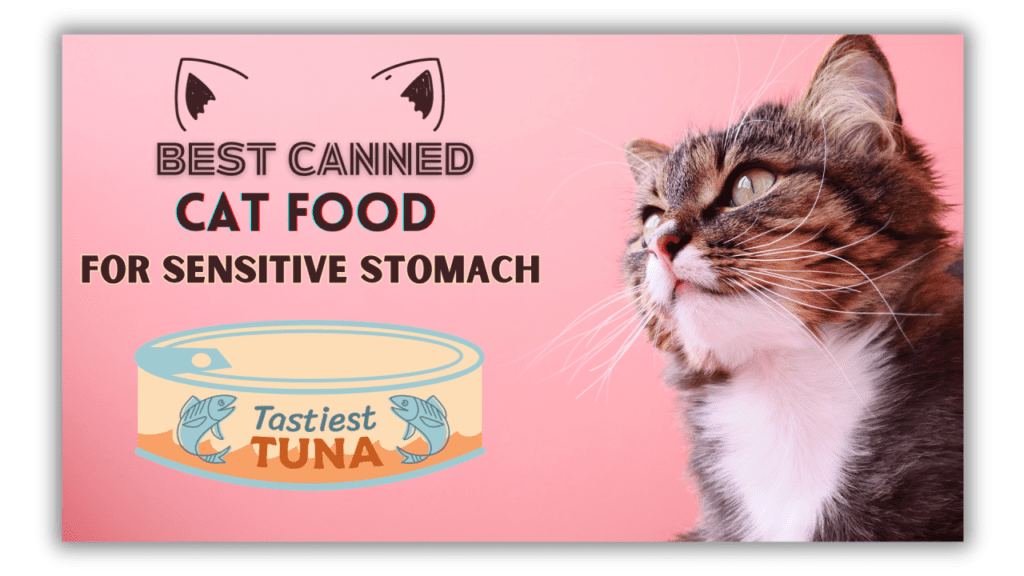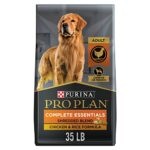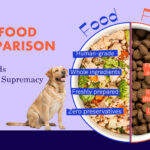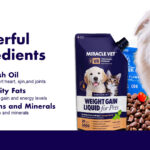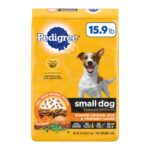The best canned cat food for sensitive stomachs is often a limited ingredient, grain-free formula. Ideal products contain easily digestible proteins and prebiotic fibers to assist with gastrointestinal health.
Many cat owners know the struggle of finding the right food for a pet with a sensitive stomach. It requires striking a balance between wholesome nutrition and gentleness on the digestive system. Canned cat food specifically formulated for feline digestive issues typically include high-quality, lean proteins and are free from common irritants like corn, wheat, and soy.
These select formulas prioritize natural ingredients and added probiotics to promote a healthy gut flora, crucial for cats with sensitivity. Choosing the right product can alleviate symptoms like vomiting, diarrhea, and gas, ensuring your cat not only enjoys their meals but also absorbs the necessary nutrients without digestive distress. As always, it’s essential to consult with a veterinarian to pinpoint the specific needs of your cat and to make an informed decision regarding their diet.
Identifying Sensitive Stomachs In Cats
Cats with sensitive stomachs need special care. Not all canned cat foods suit them. Figuring out if your feline friend has a delicate digestion can save them from discomfort and ensure they get the nutrients they need. Let’s learn how to spot the tell-tale signs.
Common Symptoms Of Digestive Issues
Look for these signs: If your cat shows any of these, they might have a sensitive stomach.
- Vomiting: More than the occasional hairball.
- Diarrhea: Loose, watery stools.
- Constipation: Difficulty passing stool.
- Gas: Yes, cats can get gassy too!
- Changes in appetite: Eating less or no interest in food.
- Weight loss: Especially if sudden.
- Lethargy: Less energy or movement.
When To Consult A Veterinarian
Contact your vet if symptoms persist. Remember, early detection helps.
| Symptom | Action |
|---|---|
| Occasional vomiting: | Monitor at home. |
| Frequent vomiting, diarrhea: | Call the vet. |
| Signs of pain, distress: | Immediate vet visit. |
| Weight changes, appetite loss: | Check with your vet. |
Remember, quick action can prevent more serious issues. Choose the right canned cat food based on a vet’s recommendation for a happy, healthy pet.
Credit: www.businessinsider.com
Key Ingredients For Sensitive Felines
Cats with sensitive stomachs need special care. Picking the right canned cat food is crucial. Sensitive felines often react to certain ingredients. To aid their digestion, particular components must be in their food. Let’s explore these key ingredients.
Proteins: Types And Digestibility
Proteins are the building blocks for a healthy feline. Yet, not all proteins are suitable for sensitive cats. Here’s what owners should look for:
- Easily digestible proteins: Think beyond chicken and beef. Novel proteins like duck and venison are less likely to cause upsets.
- Single protein sources are often better than multiple. They help identify allergens and protect the stomach.
- Hydrolyzed proteins break down into smaller parts, which makes them easier to digest.
Importance Of Fiber And Probiotics
Fiber and probiotics are essential for sensitive stomachs. They support a strong gut.
| Fiber | Probiotics |
|---|---|
| Helps digestion | Balances gut bacteria |
| Controls hairballs | Boosts immune system |
| Reduces diarrhea and constipation | Enhances nutrient absorption |
Both soluble and insoluble fibers aid in healthy bowel movements. Prebiotics and probiotics work together to maintain a balanced gut environment. Always check labels for these components.
The Role Of Grain-free Options
The Role of Grain-Free Options has become a hot topic among cat owners with furry friends who have sensitive stomachs. Choosing the right cat food is pivotal for their health and happiness. This is where grain-free cat food enters the scene.
Benefits Of Grain-free Diets
Grain-free cat food can be a game-changer for cats with digestion issues. Here are some benefits:
- Easier Digestion: Grain-free food is often easier for cats to digest. Cats are carnivores by nature.
- Fewer Allergies: Cats may develop fewer food sensitivities. Grains can sometimes cause allergic reactions.
- More Protein: Grain-free options often have higher protein content, which is crucial for your cat’s health.
- Energy Levels: Cats may enjoy increased energy levels. Better food absorption leads to more energy.
- Healthier Coat: A diet high in protein from a grain-free diet can result in a shinier and healthier coat.
Debunking Grain-free Myths
It’s essential to separate fact from fiction when it comes to grain-free diets for cats:
| Myth | Reality |
|---|---|
| Grain-Free is Always Best | Not all cats require a grain-free diet. It’s about individual needs. |
| Grain-Free Prevents Illness | While it can help with allergies, it’s not a cure-all for every ailment. |
| Grains Cause Obesity | Obesity is due to overfeeding and lack of exercise, not just grains. |
Reviewing Top Canned Cat Foods
Is your cat facing tummy troubles? Choosing the right food for a sensitive stomach is crucial. A gentle, wholesome diet can make a big difference. In this section, we dive into the best canned cat food designed for sensitive feline stomachs.
Brands And Formulations
Finding the right brand is daunting. But, worry not. Below, you’ll find brands that prioritize digestive health.
- Hill’s Science Diet: Their Sensitive Stomach & Skin formula supports digestion.
- Blue Buffalo: Offers grain-free options rich in probiotics.
- Purina Pro Plan: Focuses on high-quality protein and prebiotic fiber.
- Royal Canin: Tailored nutrition to support a healthy gut.
Special formulas ease digestion and soothe sensitive systems. Canned options keep hydration in check, too. Look for limited ingredient lists and novel proteins. These reduce the chance of stomach upsets.
Consumer Reviews And Testimonials
Real cat owner experiences shed light on performance. Here’s what they say:
| Brand | Positive Feedback | Negative Feedback |
|---|---|---|
| Hill’s Science Diet | Helps with furballs and digestion | Some cats dislike the taste |
| Blue Buffalo | Picky cats love it | Pricey |
| Purina Pro Plan | Noticeable health improvements | Not all flavors are hits |
| Royal Canin | Solves sensitive stomach issues | Some find it too specific |
Testimonials highlight how these foods assist with sensitive stomachs. Yet, every cat is unique. Results may vary. Consider starting with a smaller purchase to test acceptance. Consulting a vet before switching food is wise.
Deciphering Cat Food Labels
Imagine walking down the pet food aisle, faced with endless cans of cat food—all claiming to be the best for your furry friend with a sensitive stomach. The key to making an informed choice lies in deciphering cat food labels. Let’s learn how to read these labels and understand what goes into the best canned cat food for sensitive stomachs.
Understanding Ingredients Lists
Cat food labels can be puzzling with a lengthy list of ingredients. Cats require a diet that’s rich in proteins, so look for real meat or fish as the first ingredient. High-quality sources include chicken, salmon, or turkey. Remember, the ingredients are listed in order of weight, so the first few items are the most critical. Here’s a quick guide:
- Meats: Provides essential proteins and amino acids.
- Whole grains: Offer carbohydrates for energy, although some sensitive cats may do better with grain-free options.
- Fruits and vegetables: Supply vital vitamins, minerals, and fiber.
Be sure to select foods with a simple and recognizable ingredient list tailored to a sensitive stomach.
Avoiding Harmful Additives
Not all additives in cat food are beneficial, and some can upset a sensitive stomach. Watch out for artificial colors, flavors, and preservatives such as BHA, BHT, and ethoxyquin. Consider canned cat foods with natural preservatives like vitamin E (mixed tocopherols) and vitamin C (ascorbic acid). A good rule of thumb is to avoid ingredients that are hard to pronounce. Here’s what to steer clear of:
| Additive Type | Examples | Reasons to Avoid |
|---|---|---|
| Artificial Colors | Red 40, Yellow 5 | May cause allergic reactions |
| Artificial Preservatives | BHA, BHT | Potential carcinogens |
| Artificial Flavors | Meat flavor, fish flavor | No nutritional value |
Choosing the best-canned food for your cat with a sensitive stomach becomes easier when you know how to read and understand food labels. Keep these tips in mind, and your cat will thank you for a happy tummy!

Credit: www.amazon.com
Homemade Vs. Commercial Foods
Choosing the right food for a cat with a sensitive stomach can be daunting. Both homemade and commercial options have their merits. Discover the benefits and challenges that each presents to make an informed decision for your feline friend.
Pros And Cons Of Homemade Diets
Feeding your cat a homemade diet can provide control over ingredients. It allows avoidance of additives that could upset your pet’s stomach.
However, constructing a balanced diet requires detailed nutritional knowledge. There is a risk of missing essential nutrients without rigorous planning.
| Pros | Cons |
|---|---|
| Ingredient control | Complex nutrition planning |
| No artificial additives | Potential nutrient deficiency |
| Customizable for allergies | Time-consuming meal prep |
Ensuring Complete Nutrition
Providing a complete and balanced diet is vital for your cat’s health. Whether choosing homemade or commercial foods, make sure that all nutritional needs are met. Commercial foods are typically formulated by veterinarians and meet industry standards.
- For homemade diets, consult with a vet or a pet nutritionist.
- Include high-quality proteins, fats, vitamins, and minerals.
- Ensure easy digestibility to cater to sensitive stomachs.
Remember, regular check-ups ensure your cat’s diet continues to meet their health requirements.
Feeding Patterns And Portion Control
When catering to a cat with a sensitive stomach, monitoring what and how much they eat is crucial. Appropriate feeding patterns and portion control can make a significant difference in managing your feline friend’s digestion.
Calculating Daily Intake
Understanding the right amount of canned cat food begins with calculating daily intake. A general guideline is using the cat’s weight and activity level to determine their calorie needs. Most food labels provide feeding recommendations, but adjustments might be necessary for sensitive stomachs.
| Weight of Cat (lbs) | Calories per Day |
|---|---|
| 5-9 | 150-200 |
| 10-14 | 200-300 |
Adjusting To Your Cat’s Needs
Each cat is unique, which means their dietary needs can vary. Pay attention to their behavior and stool quality after meals. Are they experiencing discomfort or digestive issues? Adjust the portion size accordingly. Gradual changes are key to avoid further upsetting their sensitive stomach.
- Start with the calculated portion.
- Observe your cat’s physical condition post-meal.
- Adjust the amount slightly as needed.
Establish a consistent feeding schedule, splitting the calculated daily intake into multiple smaller meals. This can aid digestion and provide comfort for cats with sensitive stomachs.
Transitioning To A New Cat Food
If your feline friend has a sensitive stomach, finding the right cat food is crucial for their health and happiness. Transitioning your cat to a new food requires patience and care. Follow these steps to switch foods smoothly and keep your cat purring with delight.
Step-by-step Guide To Changing Foods
- Choose the right food: Pick a cat food designed for sensitive stomachs. Look at the ingredients and nutrition facts. Your vet can help you choose.
- Mix the old with the new: Start by mixing a small amount of new food with the old. Each day, increase the amount of new food.
- Take it slow: Over one to two weeks, gradually shift to the new food. A slow transition helps prevent stomach upset.
- Stick to a schedule: Feed your cat at the same time each day. Consistency helps your cat adjust to the new food.
Monitoring Your Cat’s Response
Watching how your cat responds to the new diet is crucial. Check for any signs of digestive trouble like vomiting or diarrhea. Your cat should also appear to enjoy eating the new food. Keep an eye on their energy levels and overall demeanor. It’s important to contact your vet immediately if you notice any concerning changes.
Note: Always have fresh water available. Changing food can increase your cat’s thirst. Fresh water supports healthy digestion.

Credit: www.amazon.com
Frequently Asked Questions For Best Canned Cat Food For Sensitive Stomach
What Wet Cat Food Is Easy On The Stomach?
Hill’s Science Diet Sensitive Stomach & Skin wet cat food is designed for easy digestion. Royal Canin Digest Sensitive Loaf also supports stomach comfort in cats.
What Is The Best Food For Cats With Digestive Problems?
Cats with digestive issues often benefit from easily digestible, high-quality, wet food diets with prebiotics or fiber. Veterinarian-prescribed, hypoallergenic, or limited ingredient formulas may also be recommended to ease symptoms. Always consult a vet for a tailored diet plan.
What Is The Best Cat Food For Cats That Throw Up?
The best cat food for cats prone to vomiting is a highly digestible, grain-free wet food with single-source protein.
Can Wet Food Upset A Cats Stomach?
Wet food can upset a cat’s stomach if they have a sensitivity or allergy to certain ingredients. Sudden dietary changes can also cause digestive issues.
Conclusion
Navigating the array of cat food options is no small feat. Your feline’s sensitive stomach deserves the best, and we’ve provided top choices to help. Remember, your cat’s health hinges on the right pick. Vet checks and quality food pave the way for a happier, healthier pet. Choose wisely and watch your companion thrive.

